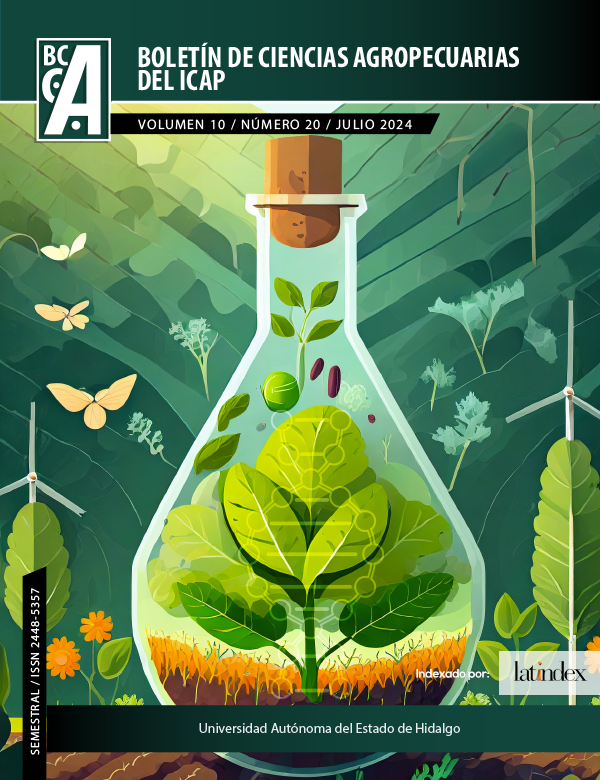Importancia económica, social y cultural de la piña en Isla Veracruz: resultados de un viaje de estudios de la Licenciatura en Gestión de Negocios Agropecuarios
DOI:
https://doi.org/10.29057/icap.v10i20.11421Palabras clave:
agronegocios, administración, piña, viaje de estudiosResumen
Study trips are an educational component of high value for the generation of experiential learning. A study trip was made to the pineapple region of the lower basin of the Papaloapan River with the purpose of illustrating the different areas of action of the agricultural business manager. Specifically, the objective of the article is to analyze the economic, social and cultural importance of pineapple cultivation in Isla Veracruz, based on the perceptions of the residents. Residents were surveyed using a structured questionnaire that integrates sociodemographic, economic, and sociocultural aspects. The impact of pineapple cultivation on the residents of Isla Veracruz is reflected in their day-to-day economics through employment and income; socially, by creating a work environment characterized by frequent interaction with different people; and culturally, by the consolidation of a festive and civic tradition around the pineapple. However, there are certain drawbacks such as job instability faced by day laborers and the emergence of recreation establishments that break social and family harmony.
Descargas
Citas
FAOSTAT. Estadísticas de producción y comercialización. 2020; fecha de consulta 11/06/2022 en: http://www.fao.org/faostat
Uriza-Ávila, D. E., Torres-Ávila, A., Aguilar-Ávila, J., Santoyo-Cortes, V. H., Zetina Lezama, R., & Rebolledo-Martínez, A. La piña mexicana frente al reto de la innovación. Avances y retos en la gestión de la innovación. 2018. Chapingo, México: Universidad Autónoma Chapingo.
Reinhardt, D. H., Uriza, D., Soler, A., Sanewski, G., & Rabie, E. C. Limitations for pineapple production and commercialization and international research towards solutions. Acta Horticulturae 2019; 1239: 51–64. https://doi.org/10.17660/ActaHortic.2019.1239.7
Dewey, J. Experience and education. 1938. New York, USA: Macmillan Publishing Company.
Kolb, D. A. Experiential learning: Experience as the source of learning and development. 1984. New Jersey: Prentice-Hall.
Gordon, M. D. Management Education and the Base of the Pyramid. Journal of Management Education 2008; 32(6): 767–781. https://doi.org/10.1177/1052562908318329
Castleberry, S. B. Prison Field Trips: Can White-Collar Criminals Positively Affect the Ethical and Legal Behavior of Marketing and MBA Students? Journal of Maketing Education 2007; 29(1): 5–17. https://doi.org/10.1177/0273475306288660
Gomez-Lanier, L. The Experiential Learning Impact of International and Domestic Study Tours: Class Excursions That Are More Than Field Trips. International Journal of Teaching and Learning in Higher Education 2017; 29(1): 129–144.
Sotomayor, S. Sport & Tourism Education Long-term benefits of field trip participation: Young tourism management professionals share their stories. Journal of Hospitality, Leisure, Sport & Tourism Education 2021; 29: 100285. https://doi.org/10.1016/j.jhlste.2020.100285
INEGI. Censo de Población y Vivienda 2020. Disponible en: https://www.inegi.org.mx/programas/ccpv/2020/#Microdatos

















